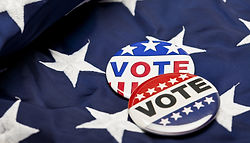Secret HOA Board meetings- "workshops"- Part 1-distance between statutory intent and operational practice
- Mike Kosor
- Apr 17, 2025
- 2 min read
Updated: May 31, 2025
One of the foundational principles of public governance is transparency—specifically, limits on secret deliberations. Yet in the context of Nevada homeowner associations (HOAs), this principle has been compromised.
Under Nevada’s HOA law (NRS Chapter 116), there is no formal definition of a “meeting.” Unlike governmental bodies, HOAs are not subject to Nevada’s Open Meeting Law (NRS 241), where “meeting” is defined as:
“The gathering of members of a public body at which a quorum is present to... deliberate toward a decision or to take action on any matter over which the public body has supervision, control, jurisdiction or advisory power.”
Lacking a definition, HOA boards, often with the help of legal counsel, assemble a quorum and conduct the business of the association- in secret—via email (see Part 2), or under the guise of informal “workshops.” While such practices may not technically violate the law, they violate its spirit.
During my many tenures as a director, I refused to participate in such closed-door gatherings. I was told they were merely "workshops"—but these discussions were clearly deliberative in nature, setting the stage for decisions later all too often rubber-stamped at formal board meetings.
If a board gathers to discuss association business, not matter what you label it, owners should be notified and allowed to attend—just as is required for every public agency in Nevada.
One additional item related to when a board can hide from owners. Since Nevada adopted the Uniform Common Interest Ownership Act (UCIOA) and enacted NRS 116 in 1992, it has imposed specific and narrow limits on board executive sessions. Under NRS 116.31085(3), boards were allowed to meet in closed session only for a limited set of sensitive matters—such as personnel, litigation, or violations.
But in 2021, the Legislature weakened these safeguards.
SB 72 (2021) expanded the executive session exemption, allowing boards to meet privately to discuss any “proposed or pending litigation.” This vague language now serves as a convenient loophole—boards need only invite their legal counsel to a meeting, invoke attorney-client privilege, and proceed to discuss virtually any matter out of public view.
The implications are serious.
This change empowers boards and their attorneys to shield deliberations from homeowners, even on issues that directly affect them. And, adding insult to injury, homeowners themselves foot the bill for the legal fees.
The counter argument is the board could loss attorney client privilege. I find this having little effective merit for the association- who the contract HOA attorney owes a fiduciary duty- not the board.
Conclusion: Restore Accountability
The Legislature must revisit NRS 116 and reestablish clear, enforceable limits on private board deliberations. Nevada’s intent to foster open, participatory governance in common-interest communities must not be undermined by vague provisions, developer-drafted bylaws, or attorney-enabled evasions.
If HOA boards are going to perform quasi-governmental functions, they must be held to a higher standard of transparency, accountability, and due process.
By Mike Kosor




Comments